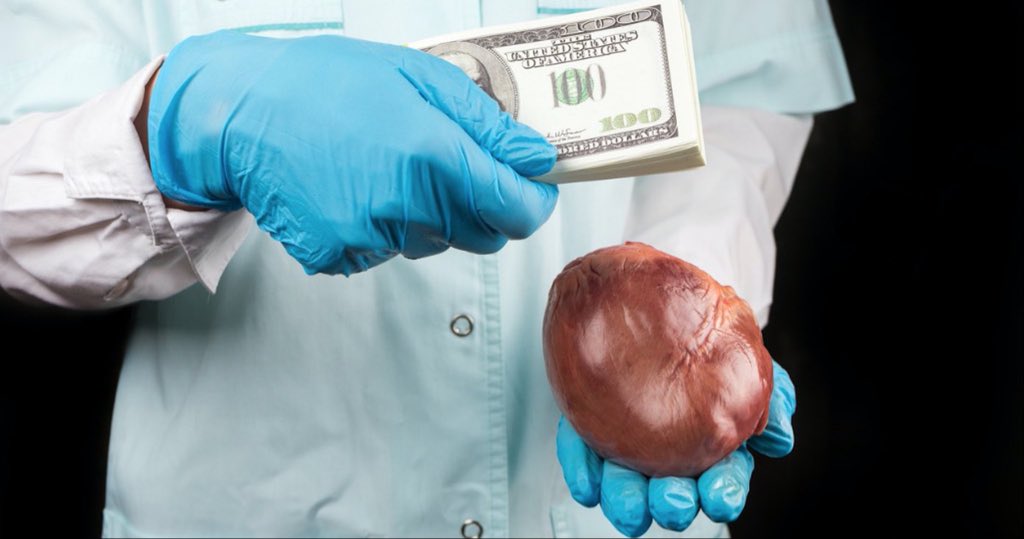A chilling scandal has exposed a black-market kidney trade in Kenya, allegedly facilitated by high-ranking officials within the Ministry of Health. A damning report by the Kenya Renal Association (KRA) reveals how vulnerable Kenyans, lured by false promises or outright coercion, were systematically exploited, some selling their organs for as little as Ksh 130,000 (£750) and a second-hand motorbike.
This investigative report uncovers a web of deception, complicity, and systemic failure that allowed an illicit trade to flourish, leaving victims with lifelong trauma and endangering Kenya’s global medical reputation.
The KRA’s investigation, described as exposing “organised trafficking,” details how impoverished Kenyans were preyed upon through deception, coercion, and abduction. Victims, primarily from low-income urban settlements, rural villages, and refugee camps, were misled into believing they were undergoing minor medical procedures. In some cases, individuals were kidnapped and subjected to forced surgeries.
These operations took place in unsanitary, unregulated facilities across Kenya, often without proper medical oversight or informed consent. Shockingly, some procedures were performed by foreign doctors unlicensed to practise in the country. The trade extended beyond Kenya’s borders, with forged documents facilitating the movement of donors and recipients in a sophisticated international operation.
While victims received meagre payments, typically Ksh 130,000 and a motorcycle, middlemen and brokers reaped enormous profits, netting up to Ksh 29.5 million (£170,000) per transaction. The KRA report states, “The entire process is driven by financial gain for traffickers, often leaving victims without proper medical care and in poor health.”
Perhaps the most disturbing revelation is the alleged involvement, or wilful ignorance, of senior officials at Afya House, the Ministry of Health’s headquarters. Despite multiple warnings from medical bodies and whistleblowers, concerns were reportedly ignored or suppressed. Sources allege that some officials and regulatory body members received monthly retainers to turn a blind eye, allowing the racket to thrive unchallenged for years.
In one egregious case, an internal investigation into Mediheal Group of Hospitals, implicated in several illegal transplants, was allegedly manipulated to exonerate the facility. The original report’s damning evidence was watered down, with the final version merely recommending that investigators “trace actual donors and recipients.”
The KRA first raised the alarm in 2021 following the death of Malama Mulema, a 23-year-old Zimbabwean who died after a failed transplant at an unlicensed hospital in Kisii. Correspondence from KRA Chairman Dr John Ngigi to the Kenya Medical Practitioners and Dentists Council (KMPDC) highlighted systemic indifference. “The transplant was conducted in an unauthorised hospital with no nephrologist present,” Ngigi wrote, noting that both the donor and recipient were foreigners, in violation of Kenya’s Health Act and international transplant guidelines.
Over the following months, Ngigi repeatedly urged regulatory bodies to act, citing evidence that Mediheal and other hospitals were sourcing kidneys from slums, refugee camps, and impoverished villages. Yet, no decisive action was taken until the scandal became too large to ignore, raising serious questions about accountability within Kenya’s health sector.
This illicit trade not only endangers lives but threatens Kenya’s standing in the global medical community. The KRA warns that failure to crack down on organ trafficking could invite international sanctions and irreparably damage the country’s credibility. “This illegal trade violates human rights and poses significant ethical and medical risks,” the report asserts, calling for international cooperation, stronger regulations, and greater transparency.
Unanswered questions loom large: How did unlicensed facilities operate in plain sight? Why were foreign doctors permitted to perform illegal surgeries with impunity? And who is profiting from this blood money while victims and their families grapple with lifelong consequences?
Until those responsible, from hospital directors to ministry insiders, are held accountable, Kenya remains complicit in one of the darkest health scandals in its history. The KRA’s findings demand urgent action to dismantle this gruesome trade, protect the vulnerable, and restore trust in the nation’s health system. The world is watching, and silence is no longer an option.





